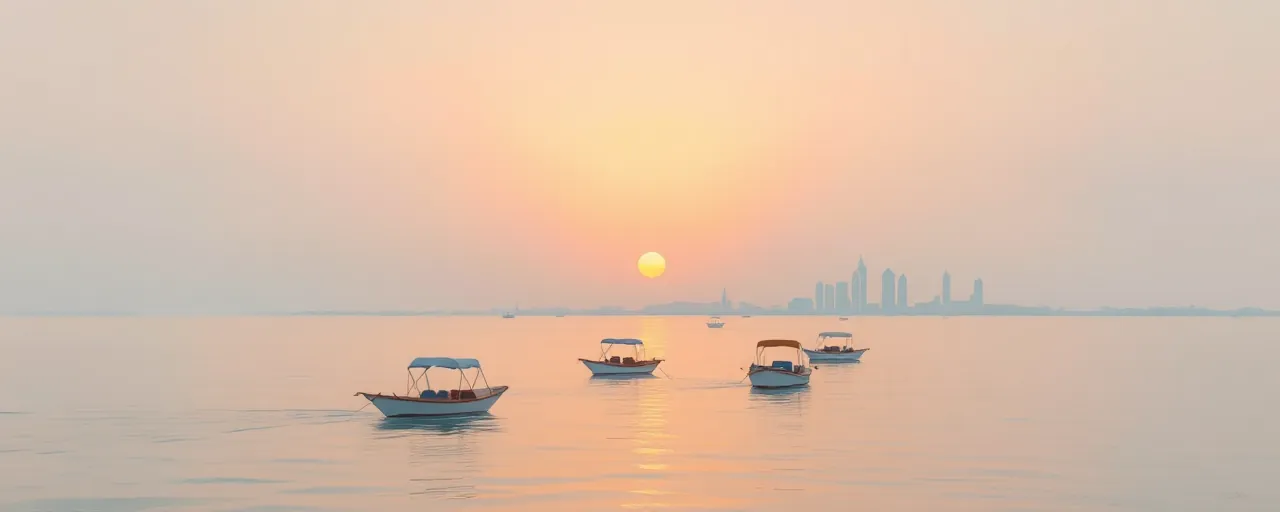A Beacon of Hope in a Turbulent Region
When Secretary of State Marco Rubio sat down with Bahrain’s Foreign Minister Dr. Abdullatif bin Rashid Al Zayani in Washington, D.C., the stakes couldn’t have been higher. The Middle East teeters on the edge of chaos, with Houthi missiles raining down on Red Sea shipping lanes and Iran’s shadow looming large. Yet here, in this meeting, a vision emerged, one that dares to imagine a region stabilized not by endless military flexing but by cooperation, trade, and a shared commitment to peace. This isn’t just diplomacy as usual; it’s a lifeline for a world desperate for something better.
The U.S.-Bahrain partnership stands as a rare bright spot amid the gloom. It’s a relationship built on decades of trust, from Bahrain’s independence in 1971 to its role today as a linchpin for American naval power in the Gulf. But what’s unfolding now goes beyond warships and bases. The Comprehensive Security Integration and Prosperity Agreement, paired with the Abraham Accords, signals a bold push for a Middle East where nations work together, not just to deter threats, but to build a future worth believing in. This is the kind of leadership America can offer, and it’s long overdue.
For everyday people, from dockworkers in Baltimore to shopkeepers in Manama, this matters. It’s not abstract policy; it’s jobs, safer seas, and the chance to live without the constant hum of war in the background. The liberal vision here isn’t naive idealism, it’s pragmatism with a pulse, a belief that diplomacy and economic ties can do what bombs alone never will. Rubio and Al Zayani didn’t just talk security; they talked trade, technology, and a region that could thrive if given half a chance.
Security Through Unity, Not Domination
Let’s talk about what’s at stake. The Houthis, backed by Iran, have turned the Red Sea into a gauntlet, launching over 100 attacks on ships since late 2023. Oil prices spike, grocery bills climb, and families halfway across the world feel the pinch. Bahrain, sitting at the Gulf’s doorstep, knows this chaos firsthand. That’s why its naval cooperation with the U.S., including hosting the Fifth Fleet, isn’t just strategic, it’s essential. But the real game-changer? It’s the joint commitment to maritime security that doesn’t stop at firepower.
The U.S. has poured resources into this fight, deploying aircraft carriers and striking Houthi targets. Critics, often from hawkish corners, argue it’s not enough, that only overwhelming force will crush the threat. They’re wrong. History proves it. Decades of airstrikes in Yemen haven’t stopped the Houthis; they’ve only fueled the cycle of resentment. What Bahrain and the U.S. are doing instead, through initiatives like the Red Sea Security Initiative, is knitting together a coalition that shares the burden and the benefits. It’s not about American dominance; it’s about collective strength.
Then there’s the Abraham Accords, a framework that’s already rewriting the region’s story. Since 2020, Bahrain and Israel have traded goods, ideas, and even tourists, proving peace isn’t a pipe dream. Expanding this to include more nations, maybe even a post-conflict Gaza, could turn the Middle East into a hub of innovation, not a graveyard of proxy wars. Detractors scoff, claiming it sidesteps the Palestinian question. Fair point, but stalling progress until every knot is untied is a recipe for paralysis. The accords aren’t perfect; they’re a start.
Trade as a Weapon for Progress
Economics might not sound sexy, but it’s the backbone of this partnership. The U.S.-Bahrain Free Trade Agreement, in place since 2006, has tripled bilateral trade to nearly $3 billion a year. American goods flow tariff-free into Bahrain, and Bahraini ports serve as a launchpad for U.S. businesses eyeing the Gulf. This isn’t trickle-down theory; it’s real money in real pockets. Workers in both countries benefit, from factory floors to tech startups, and that’s a win worth celebrating.
What’s next is even more exciting. Talks between Rubio and Al Zayani spotlighted emerging technologies, supply chain resilience, and sustainable growth. Bahrain’s U.S. Trade Zone at Khalifa bin Salman Port is a concrete step, a hub where American ingenuity meets Gulf ambition. Some skeptics grumble that free trade only fattens corporate wallets, leaving the little guy behind. They miss the point. This deal has kept the U.S. running a trade surplus with Bahrain, proving that smart policy can lift everyone, not just the suits.
Contrast that with the alternative: isolationism or endless tariffs. That path chokes growth, spikes prices, and leaves nations like Bahrain vulnerable to bigger predators like China or Russia, who’ve already flexed their naval muscles in the Strait of Hormuz. The U.S.-Bahrain model isn’t just about profit; it’s about stability through prosperity, a liberal ideal that’s been mocked as soft but keeps proving its grit.
The Road Ahead
This partnership isn’t a done deal; it’s a promise that needs tending. The Middle East won’t transform overnight. Iran’s proxies, from the Houthis to Hezbollah, still wield chaos like a cudgel, and the U.S. can’t falter in its resolve. But the answer isn’t more of the same, it’s doubling down on what works: alliances, trade, and a vision that pulls nations toward something better. Bahrain’s role, small as it seems, is pivotal, a bridge between East and West that could anchor a new era.
For Americans wondering why this matters, look at your gas pump, your grocery cart, your news feed. A stable Middle East means a stable world, and that starts with partnerships like this one. Rubio and Al Zayani didn’t just shake hands; they laid out a roadmap. It’s on us, as a nation that claims to value freedom and progress, to follow it. The liberal heart of this effort beats strong, not because it’s easy, but because it’s right.
